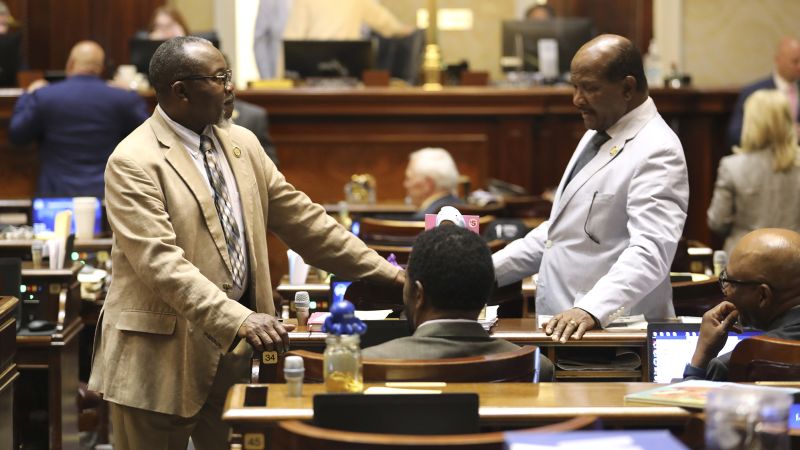

CNN
—
Lawmakers in South Carolina will reconvene Wednesday morning after debating for more than 12 hours on a bill that would ban most abortions as early as six weeks into pregnancy.
South Carolina’s General Assembly finished its legislative session last week but Republican Gov. Henry McMaster announced Friday that he was calling lawmakers back for a special session to continue to work on the abortion bill and other legislation.
Prior to Tuesday’s debate, Democratic lawmakers filed over 1,000 amendments to the proposed abortion ban and warned that they planned to make fellow lawmakers debate every one.
“We have no intention of pulling any amendments. We are going to make it hurt if they are going to force this on us,” Democratic state Rep. Beth Bernstein said.
But GOP state House Speaker Murrell Smith has made it clear to lawmakers that they will not leave until the bill is approved.
“Bring supper, dinner, breakfast, lunch, whatever for days or however long you want to get through these amendments,” Smith said last week, according to WLTX.
Tuesday’s session began in the afternoon and lawmakers debated into early Wednesday morning, adjourning just before 2 a.m ET. By that time, lawmakers had not even debated half of the proposed amendments to the bill.
Senate Bill 474, known as the “Fetal Heartbeat and Protection from Abortion Act,” would ban most abortions after early cardiac activity can be detected in a fetus or embryo. Such activity can commonly be detected as early as six weeks into pregnancy, before many women know they are pregnant.
The legislation passed out of the Republican-controlled state Senate in February but has yet to pass the state House.
The contentious debate on the abortion bill in the Palmetto State comes as lawmakers in neighboring North Carolina moved to ban most abortions after 12 weeks after the state’s Republican-led General Assembly overrode a veto by Democratic Gov. Roy Cooper.
South Carolina passed a similar 6-week abortion ban in 2021 but the state Supreme Court struck it down earlier this year, concluding that the state constitution’s privacy protections require limits on the procedure to allow women sufficient time to end a pregnancy.
Recent efforts to pass further restrictions on abortion also faltered in April when the state Senate failed to pass the “Human Life Protection Act,” which would have banned most abortions in the state, in a 22-21 vote with five women voting against it – including three Republicans. The bill had previously passed in the state House and included exceptions for incidents of rape or incest.
South Carolina’s bill offers exceptions for fatal fetal anomalies or to prevent the death or “irreversible impairment of a major bodily function” of the mother throughout the pregnancy. It also would allow exceptions up to 12 weeks for cases of rape, incest or if the pregnant person is under the age of 17.
